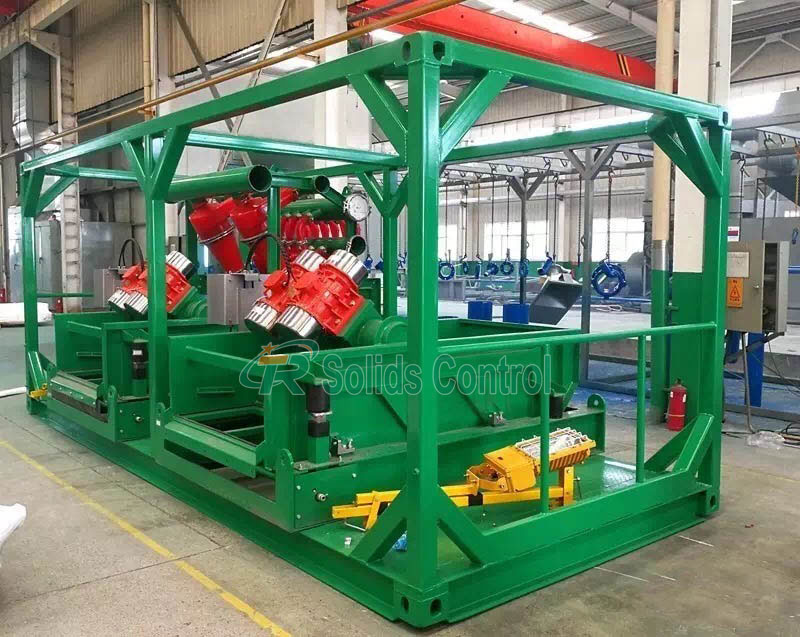1. Historical Evolution and Technological Foundations
The mud circulation system (MCS) originated as a critical component of drilling engineering, primarily designed to cool drill bits, carry cuttings, and stabilize wellbores. Early systems relied on simple mechanical pumps and open-loop mud disposal, leading to significant environmental pollution and material waste.
By the late 20th century, advancements in drilling fluid chemistry and solid-control technology revolutionized MCS efficiency. For instance, the introduction of polymer-based drilling fluids reduced friction and improved (cuttings-carrying) capacity, while multi-stage separation equipment (shale shakers, hydrocyclones, centrifuges) enabled fine particle removal, extending mud lifespan. By 2025, China had adopted API standards for mud measurement, aligning with global best practices in fluid performance optimization.
Modern MCS integrates five key modules:
Pumping Systems: High-pressure mud pumps (triplex or quintuplex designs) now feature variable frequency drives (VFD) for precise flow control, reducing energy consumption by up to 30% compared to traditional models.
Solid-Control Units: Advanced shale shakers with dual-deck screens and decanter centrifuges achieve 95%+ solids removal efficiency, enabling mud reuse rates exceeding 80%.
Storage and Mixing: Modular mud tanks with agitators and jet mixers support rapid formulation adjustments, critical for complex geological conditions like shale gas reservoirs.
Monitoring and Automation: IoT-enabled sensors track mud density, viscosity, and pH in real time, while AI algorithms optimize chemical additive dosing, minimizing human intervention.
Environmental Protection: Closed-loop systems with mud recovery units (MRUs) and waste treatment stations cut freshwater usage by 60% and eliminate hazardous discharges, meeting stringent EPA and EU regulations.
Oil & Gas Drilling:
In ultra-deepwater projects (e.g., South China Sea), MCS supports 20,000+ psi wellbore pressure management. Innovations like underbalanced drilling (UBD) with nitrogen-foam mud reduce formation damage, boosting recovery rates by 15–20%.
Tunneling (TBM/Shield Machines):
Mud-water balanced shield machines rely on MCS to maintain face stability in soft ground. For example, the Hong Kong–Zhuhai–Macau Bridge tunnel project used a real-time mud rheology control system to prevent collapse in sandy strata.
Piling Engineering:
Long-distance (over-water) pile foundations (e.g., Daye Lake Bridge) employ double-wall casing mud circulation, cutting slag transport costs by 40% while reducing water pollution.
Mining and Geothermal:
In hard-rock mining, MCS facilitates diamond core drilling with high-density cement slurries, while geothermal projects use thermal-resistant muds to withstand 300°C+ temperatures.

Green Mud Technologies:
Biodegradable xanthan gum-based fluids and silica-free additives are replacing traditional bentonite, cutting toxicity by 70%.
Digital Twin Integration:
3D simulations of mud flow dynamics optimize pipe routing and pump selection, reducing trial-and-error costs in offshore drilling.
Zero-Discharge Systems:
Membrane filtration and electrocoagulation technologies recover 99% of water from used mud, enabling closed-loop operations in arid regions.
Robotic Maintenance:
Autonomous drones inspect mud tanks for leaks, while AI-powered predictive maintenance slashes downtime by 25%.
As of 2025, the global MCS market exceeds $12 billion, driven by Asia-Pacific infrastructure booms (China’s Belt and Road tunnels, India’s Delhi-Mumbai Expressway).
From its humble beginnings in oilfields to its pivotal role in mega-infrastructure, the mud circulation system exemplifies engineering innovation aligned with sustainability. As industries demand deeper, safer, and greener operations, MCS will continue evolving through digitization, material science, and circular economy principles, cementing its status as an industrial cornerstone.

Address: No.2 Hu·ochang Rood, Yangling District, Xianyang City, Shaanxi Province, China
Tel: +86-13186019379
Wechat: 18509252400
Email: info@mudsolidscontrol.com
Contact: Mr.Li